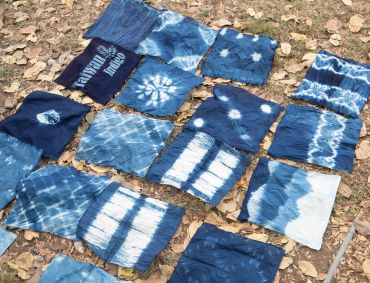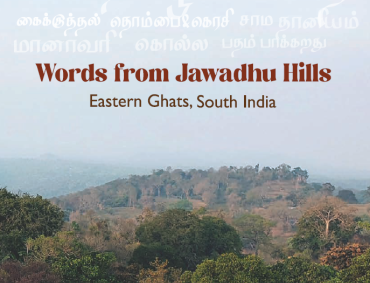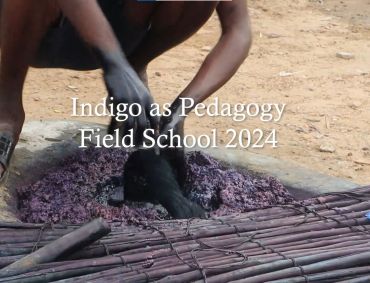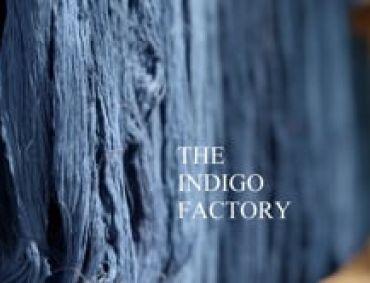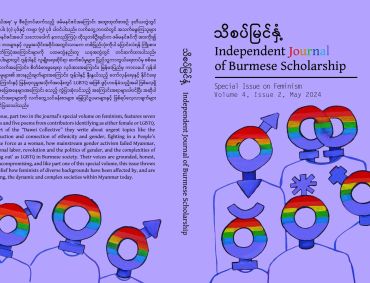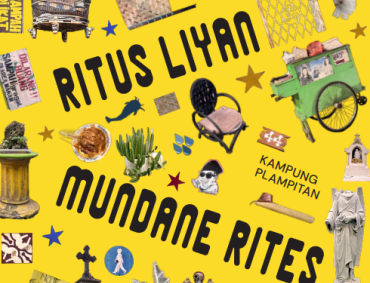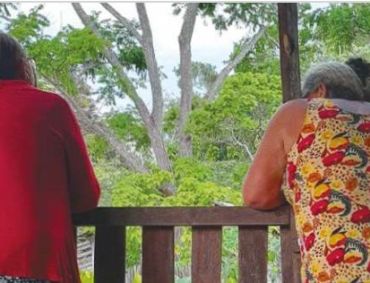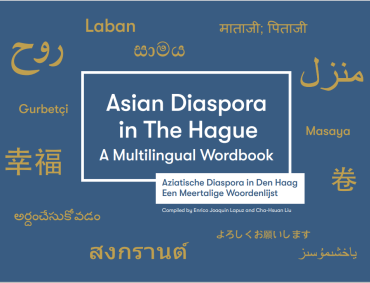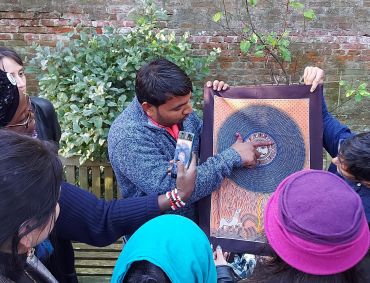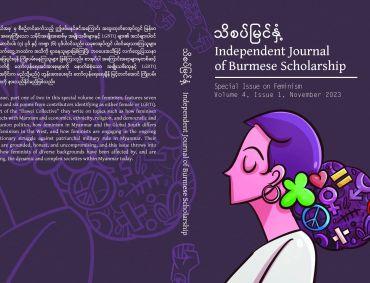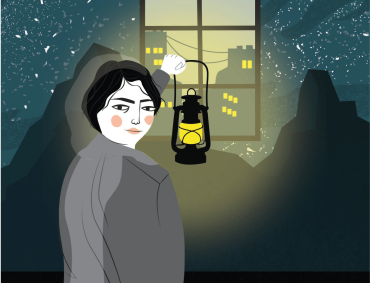Resources
Our Stories Matter! A Place-based Educator’s Toolkit is a training guide developed to enable educators working in educationally precarious contexts.
Indigo occupies a haloed place as a colour, a craft, and a hi(story) of global interactions. Viewed largely as a dye-yielding plant with a specific chemistry and exchange value as a commodity, the guests in this podcast from IIAS' The Channel focus on indigo as a tool for African and Asian self-consciousness.
Words from Jawadhu Hills is the fourth publication of the HAB Wordbook Series project, intended as a window into the world of subsistence millet cultivators of the Jawadhu Hills of South India.
Indigo as Pedagogy Field School is a documentary video of the Indigo as Pedagogy: International Field School co-organised by IIAS, the Institute of African Studies (IAS) at the University of Ghana, and the Taipei National University of the Arts (TNUA) in February 2024.
Click on the image or the hyperlink to play the film.
The Indigo Factory is a journey through the rich tapestry of indigo-making and subsequent processing into fabric, layered with India’s colonial history that transformed an artisanal occupation into mass production in factories.
Compiled by HAB partner and Burmese scholar Tharaphi Than, this issue of the Independent Journal of Burmese Scholarship (IJBS) is part two of the journal's special volume on feminism. It features seven articles and five poems from contributors identifying as either female or LGBTQ.
The Ritus Lyan/Mundane Rites exhibition catalogue is an anthology of writings and photographs, documenting the artistic processes and works of urban researchers, activists, artists, and curators, alongside the inhabitants of kampung Plampitan, an inner-city urban settlement in Surabaya, Indonesia from March to July 2024.
Words of Riverine Women, published by Zazie Editions of Brazil in collaboration with the IIAS, introduces words and expressions used in the daily lives of the women community residing in Iriri, in the Amazon region. The words highlighted by the Riverine women in this glossary, compiled by researcher Satya Maia Patchineelam, embody the essence of their daily experiences and emotional connections formed through conversations within their families and the environment that surrounds them.
Asian Diaspora in The Hague (Aziatische Diaspora in Den Haag) is a brief encounter into the world of those who have crossed many physical and mental borders in order to call The Hague their home. It is a collaborative effort between HAB and Leiden University College (LUC), The Hague. A quick search for the words toko (‘shop’ in Bahasa Indonesia) and roti (‘flat bread’ in Hindi) on a Google map of the city will reveal the neighbourhoods or locations of family-owned shops and restaurants belonging to Asian immigrants settled here.
This episode of IIAS' The Channel podcast features a conversation hosted by Aarti Kawlra, the Academic Director of the HAB program, in which she speaks with three guests: Daan van Dartel, Curator of Popular Culture and Fashion at the National Museum of World Cultures in the Netherlands; Lipika Bansal, a researcher, social designer, and the founder of Textiel Factorij in Amsterdam; and, finally, Kirit Chitara, an artist based in India.
Compiled by HAB partner and Burmese scholar Tharaphi Than, this issue of the Independent Journal of Burmese Scholarship (IJBS) is part one of the journal's special volume on feminism. It features seven articles and five poems from contributors identifying as either female or LGBTQ.
Afghan Communities in Delhi, co-published by the Centre for Community Knowledge (CCK) in India and HAB, shares words in the Dari dialect and English that emerged from conversations with Afghans in Delhi.

